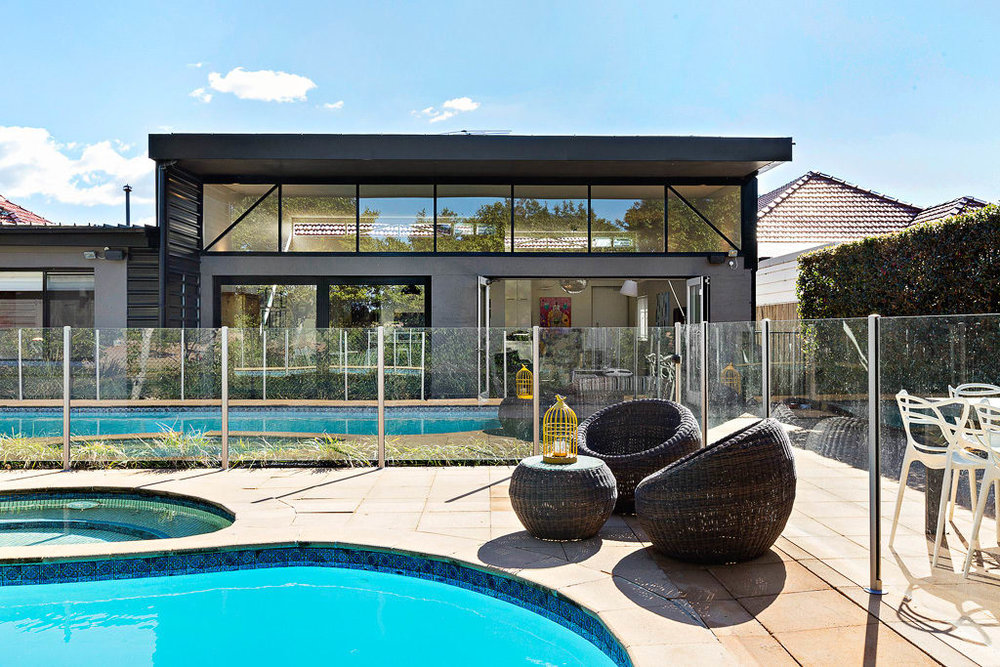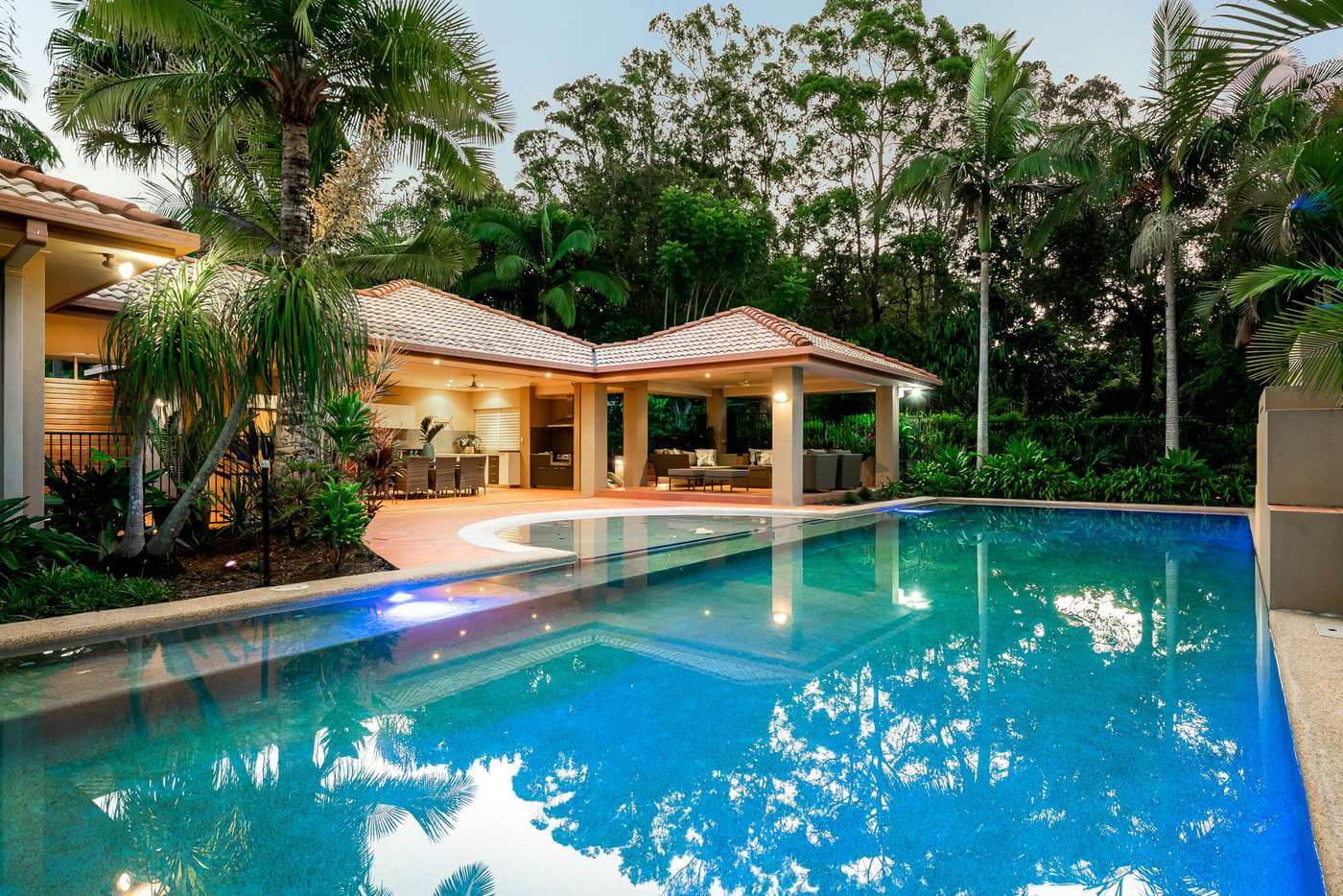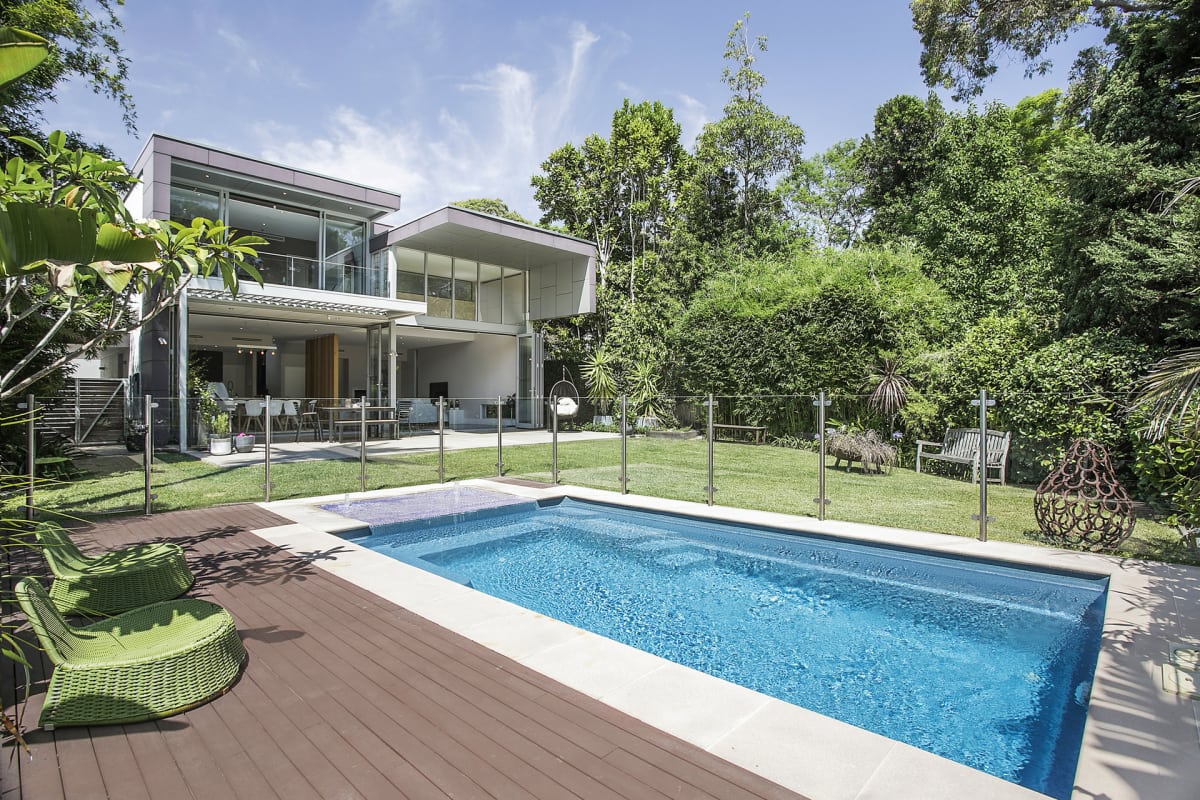With warmer weather (hopefully!) on its way, now is the time of year people start taking the covers on their backyard pools and preparing for peak swimming season. It’s also a good time for pool owners to check and recheck that their pool safety is up to scratch.
All Australian swimming pool owners are required to follow the pool safety compliance regulations in their state or territory. Pool safety regulations were amended back in the 1970s to avoid drowning deaths of young children by preventing unattended access to backyard pools. To ensure your pool is compliant with the current laws, it’s wise to have your pool fence installed and maintained by a professional.
Knowing the pool safety regulations in your location is not only important for the safety of your family and guests but complying with the laws is vital to avoid financial penalties. Here’s what you need to know about pool fencing regulations, the different options available and fencing upkeep.
 For sale: 13/591 Broken Head Road, Broken Head, NSW
For sale: 13/591 Broken Head Road, Broken Head, NSW
Fence regulations
Before building your pool fence, you must know the pool safety regulations for your local region or state. It is important to understand this legislation to ensure your pool and fence is compliant.
There are several rules, that differ from state to state, that you need to follow when installing a pool fence. Your pool should meet the required measurement in the pool fence regulations in your state or territory and local council website (NSW, VIC, QLD, SA, TAS, NT, WA & ACT).
As an example, the child-resistant barrier requirements in NSW are:
- Pool fence height needs to be 1200mm.
- 900mm separation between the upper and lower horizontal components of the fence to maintain a non-climbable zone.
- Maximum 100mm gap under the fence.
- Maximum 100mm gap between barrier components, allowing for any flex in the component material.
- Non-climbable zone extends 300mm from the barrier into pool area and 900mm outside of the pool area.
- Steps, retaining walls, objects or level changes are to be 500mm away from the barrier
- Landscaping and other fixtures or furniture that are within the non-climbable zone must be removed.
By following these regulations and building a sturdy and practical fence around your pool area, you can be assured that your pool is made safe. If you’re worried about the fence being an eyesore, there are several types of attractive pool fence materials to choose from.
Pool fence options
Pool barriers can be constructed using any type of material you want, so long as it adheres to the pool compliance regulations. The barrier should not have sharp edges, sharp projections, entrapping spaces or any other similar hazards.
There are many types of pool fences such as glass, mesh and aluminium that each have different pros and cons:
- Glass– Glass is one of the most visually appealing and luxurious types of fencing that keeps the view of your pool largely unobstructed while maintaining the necessary safety barrier requirements. Glass fencing is also climb-resistant and highly durable. But it is also one the most expensive types of pool fence to install and repair.
 For sale: 58 Lenthall Street, Kensington, NSW
For sale: 58 Lenthall Street, Kensington, NSW
- Mesh- Mesh pool fencing is easy to install and uninstall, and is relatively affordable. It also works well as a temporary pool fence too. It comes in many different colours, heights and styles. You can also find mesh fencing that is mildew resistant, as well as rip and fade proof. It is also climb-resistant.
- Aluminium- Aluminium pool fencing is the most durable, low maintenance and strongest of all types of pool fencing. It is also easy to install and semi-private yet stylish. For these reasons, aluminium pool fencing is one of the most popular choices for Australian pool owners. However, aluminium fencing does require frequent cleaning and occasional repairs.
 For sale: 18 Royston Street, Brookfield, QLD
For sale: 18 Royston Street, Brookfield, QLD
When it comes to finding the best type of pool fence, you should first consider the safety of the fence then the design. You must decide what your priorities are in terms of aesthetics, durability, budget and safety.
Pool fence maintenance
Even though your pool may not always be in use throughout colder seasons, pool fence safety and maintenance should be taken care of year-round. Maintenance of pool fences and safety barriers are essential to prevent drownings and accidents.
Young unsupervised children can gain access to a pool through a broken barrier or faulty gate. If your pool barrier or gate is damaged or malfunctioning, repair it immediately. If a part of your pool fence is missing, replace it as soon as possible.
To ensure your pool is safe and secure, frequently check your pool barriers and access points. If you’re confident with making repairs you can fix the fence or gate yourself, but seeking assistance from private pool compliance certifiers is recommended because they’re not only experts in the field, but also licensed to perform minor repair work.
 For sale: 789 Melbourne Road, Sorrento, VIC
For sale: 789 Melbourne Road, Sorrento, VIC
Hire a private inspector
Following pool safety regulations is essential to having a safe backyard pool. If you have any concerns about your swimming pool engage the local council or a private certifier to arrange an inspection to ensure your pool is compliant with the law.
If your pool is non-compliant, the local council or private certifier will give you a non-compliance report showing that your pool doesn’t meet the regulations. Some inspectors can assist you with any repairs necessary on your pool. On the other hand, if you pool is found to be compliant after the inspection, the local council or private inspector can issue you a certificate of compliance.
Safety of your family and visitors should be your top priority when it comes to having a home swimming pool. Collaborating with professional private certifiers could be helpful. Installing and maintaining pool fences correctly is essential to minimising the risk of drowning deaths in your own backyard.






I thought you made a good point when you explained that it is important to make sure that your pool fence is compliant with local safety regulations. I would imagine that it would be better to hire a professional to install a pool fence rather than doing it yourself. A fence that is installed by a professional will most likely meet your local safety regulations. http://www.powerwholesale.com.au/plastics/